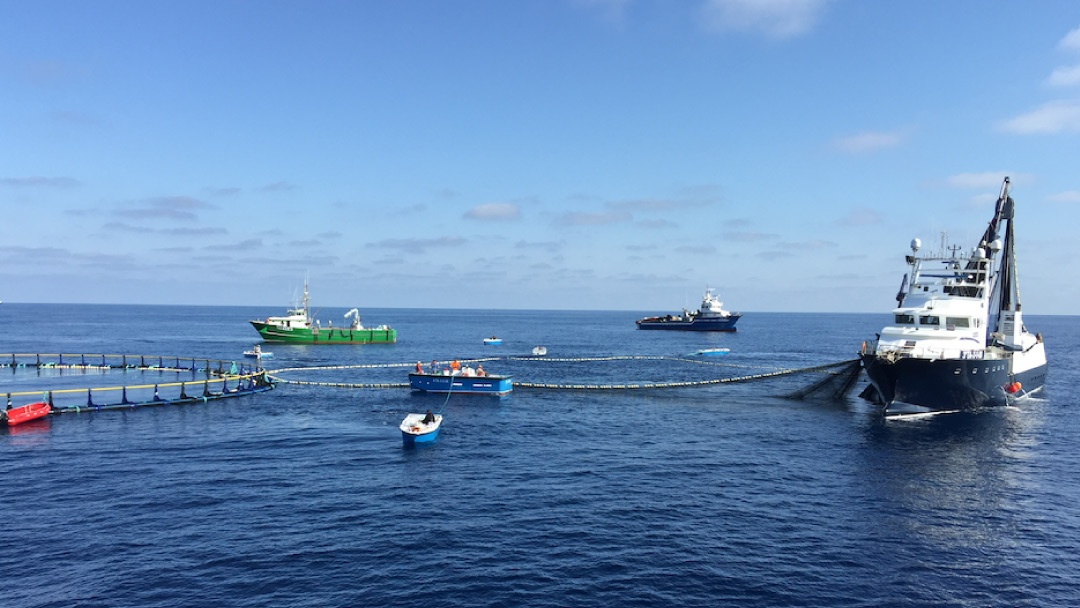"Without beekeeping, bees are no longer able to advance on their own."
- The host and beekeeper of the Mattin Jauregi Egonarria programme has visited Azkain in the house of Mikaela Untsain, a referent in this world. He explains that for the bee to last today it is necessary to have beekeepers, who without them will be lost. He explains the bases he works on and tells him a funny passage.

Mikaela Untsain has been in professional apiculture for 21 years. Before leaving his teaching profession and starting to engage in beekeeping, he dedicated himself to learning about different models around the world. He currently works in organic with native black bee. It has hives next to the house. Here you can see the complete dialogue between the reference beekeeper and the young beekeeper:
Mattin Jauregi, presenter and beekeeper of Egonarria, asks him what relationship makes the bee live so close to home. Untsain has explained many positive and only one negative aspects: "I like bees to always be in sight, because that's how I understand their dynamics a little, what they're doing: when and with what flowers they've started working on in spring ... Without opening a hive, from home, from the terrace, thanks to its sound, its activity and the smell in the hive, I know what they are doing. Having a hive at home, that gives me [information] what dynamic I will have in ten days' time in other hives. That therefore organizes my work and I find it very useful. The problem is that when there's a lot of Asian wasps, I see how bees are damaged, how wasps are eating them, and that does harm. But the truth is, if the bees don't have them all around me, I feel kind of scarce."
"I wanted a beekeeping chimple and from here."
He practised beekeeping in Uruguay, but he has been in beekeeping for 21 years in Euskal Herria, one of the pioneers. It works with indigenous and ecological black bee. He tells presenter Jauregi about the model: "I've seen a lot of models, but since you're a beekeeper, I'm sure that the beekeeping you do is not exactly the same as I do. I think it is important that everyone should detect in their region an apiculture suitable for him. For me it was important to take advantage of the native bee, to value its flowers to the maximum, to know them... Right here in Azkain, make honey and sell it as close as possible. So I wanted a chimple beekeeping and from here. Native to both race and work, flowers and sale."
Their products are labeled idoki. Jauregi asks: "Idoki is a label created in Iparralde over 20 years ago that demonstrates our work ethic. It secures autochthonous cultivation, the smallest farm, nothing industrialized. They are small farms or farmhouses based on respect for soil, respect for livestock, respect for the farmer and, of course, the purchaser. In Idoki we are a hundred baserritarras that we form a network in Iparralde."
What has beekeeping changed in these 21 years?
This is the question asked by Jauregi and Untsain’s answer: "You're right, things are changing. In the past, more beekeeping was done for self-consumption and a little more. But beekeeping is becoming more and more professional. We therefore need more production, a little more profit and we must be able to value the products. That is why we need to learn. In addition, because of climate change, we are in the middle of nature with bees. If there are more Asian wasps, more barros... I think what we need to do is learn how to grow bees, because if we don't learn how to grow, they'll be lost. Until 30 years ago, bee bases were observed in trees. Now, at least in the Northern Basque Country, perhaps a little more in the interior, but in this region no more bee can be seen. This means that if beekeepers don't grow bees, there are no bees. We must therefore learn. If we want the bee to go ahead, to stay alive, we have to understand them and grow them, because if not, they are not able to reproduce more in these regions. And you need more technique, you need to learn, and that's why I started giving courses, both in my family and in the associations, so that people learn different techniques. And for beekeepers to come together to talk, to exchange their experiences ... That seemed very important to me."
Curiosity: the highest hive
Jauregi asks the farmers to visit to tell a curious story. Untsain says a ridiculous: "In Ezpeleta there is a Portuguese beekeeper. It has hives on a flooded ground, because it has a small stream that goes underneath. So he told me that he had put some hives up and wanted my point of view, to see how the hives were, whether they were in effect, whether they were in trouble ... I went to her hive and... I had the hives in height, but two and a half meters high! I didn't have a hole or an evil to climb up, I climbed in some way, and I had to be with my legs on a bad table, two and a half meters high, visiting the bees. And we ridiculed ourselves, because their only concern was that of bees, and the only concern I had was to keep the balance on the table. These stories have happened to me. Thanks to bees, I've been in very different situations, with very different people, and that's really enriching."










